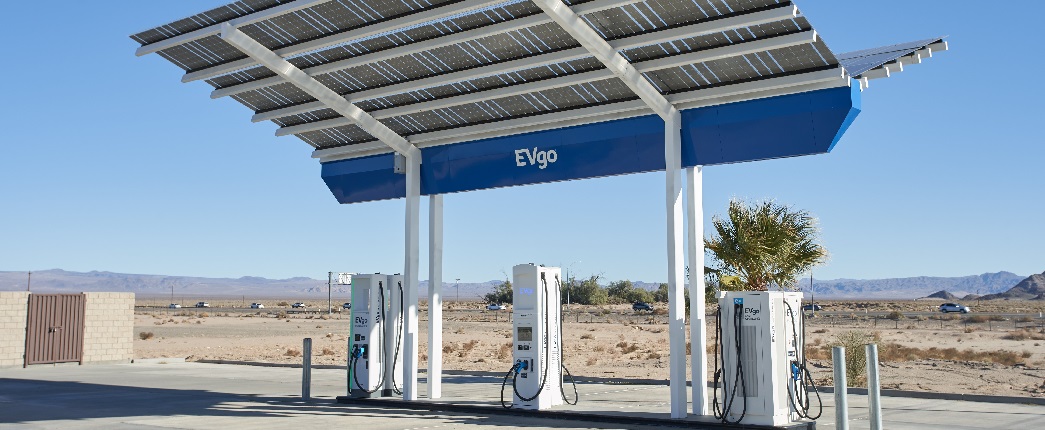
Electric vehicle charging stations funded with federal money would have to have a minimum number and type of chargers capable of supporting drivers’ fast-charging needs, under proposed minimum standards and requirements for a national EV charging network outlined in a draft released earlier this month by the Biden administration.
The U.S. Department of Transportation’s Federal Highway Administration announced on June 9 a Notice of Proposed Rulemaking on minimum standards and requirements for projects financed under the National Electric Vehicle Infrastructure Formula Program and projects for construction of publicly accessible electric vehicle chargers funded under title 23, United States Code.
“To support the transition to electric vehicles, we must build a national charging network that makes finding a charge as easy as filling up at a gas station,” U.S. Transportation Secretary Pete Buttigieg said in a press release. “These new ground rules will help create a network of EV chargers across the country that are convenient, affordable, reliable and accessible for all Americans.”
In February, the U.S. Departments of Transportation and Energy announced that nearly $5 billion would be available to states over the next five years under the new NEVI Formula Program, established by President Joe Biden’s Bipartisan Infrastructure Law, to build out a national EV charging network.
The agency noted that no national standards exist for the installation, operation or maintenance of EV charging stations and that wide disparities exist among EV charging stations in key components. These include operational practices, payment methods, site organization, display of price to charge, speed and power of chargers, and information communicated about the availability and functioning of each charging station.
Under the proposed standards, charging stations must contain a minimum number and type of chargers capable of supporting drivers’ fast-charging needs. Additionally, the proposed rules would require consistency concerning the installation, operation and maintenance of NEVI Formula Program projects to provide the traveling public with reliable expectations for their charging experience. The proposed rules would specify the required minimum density of provided chargers, payment methods and requirements for customer support services.
Proposed rules would set certification standards for the workers installing, operating and maintaining electric vehicle chargers, as well as support workforce development and on-the-job training.
Other proposed requirements would create a national network of EV charging infrastructure that could communicate and operate on the same software platforms from one state to another; address traffic control devices and on-premises signage; create data submittal requirements to help create a public EV charging database; and have network connectivity requirements to allow for secure remote monitoring, diagnostics, control and updates.
The Federal Highway Administration also proposes requirements that would standardize communication to consumers of price and availability of each charging station to help consumers make informed decisions about trip planning and when and where to charge their EVs.
“This is a foundational step that will provide EV drivers with predictable access to reliable electric vehicle charging access across the United States,” Deputy Federal Highway Administrator Stephanie Pollack said.
The notice of proposed rulemaking may be viewed on the Federal Register website, where it was published on June 22.